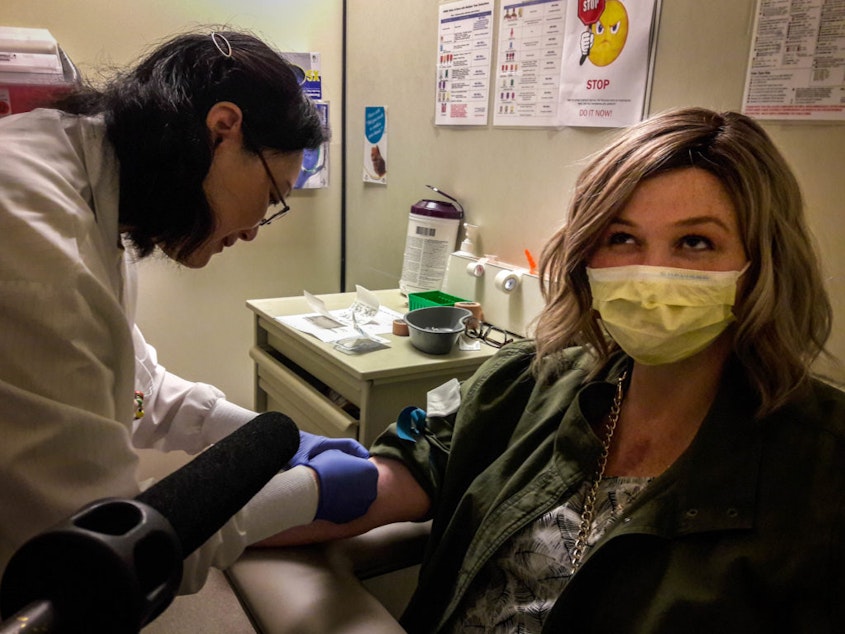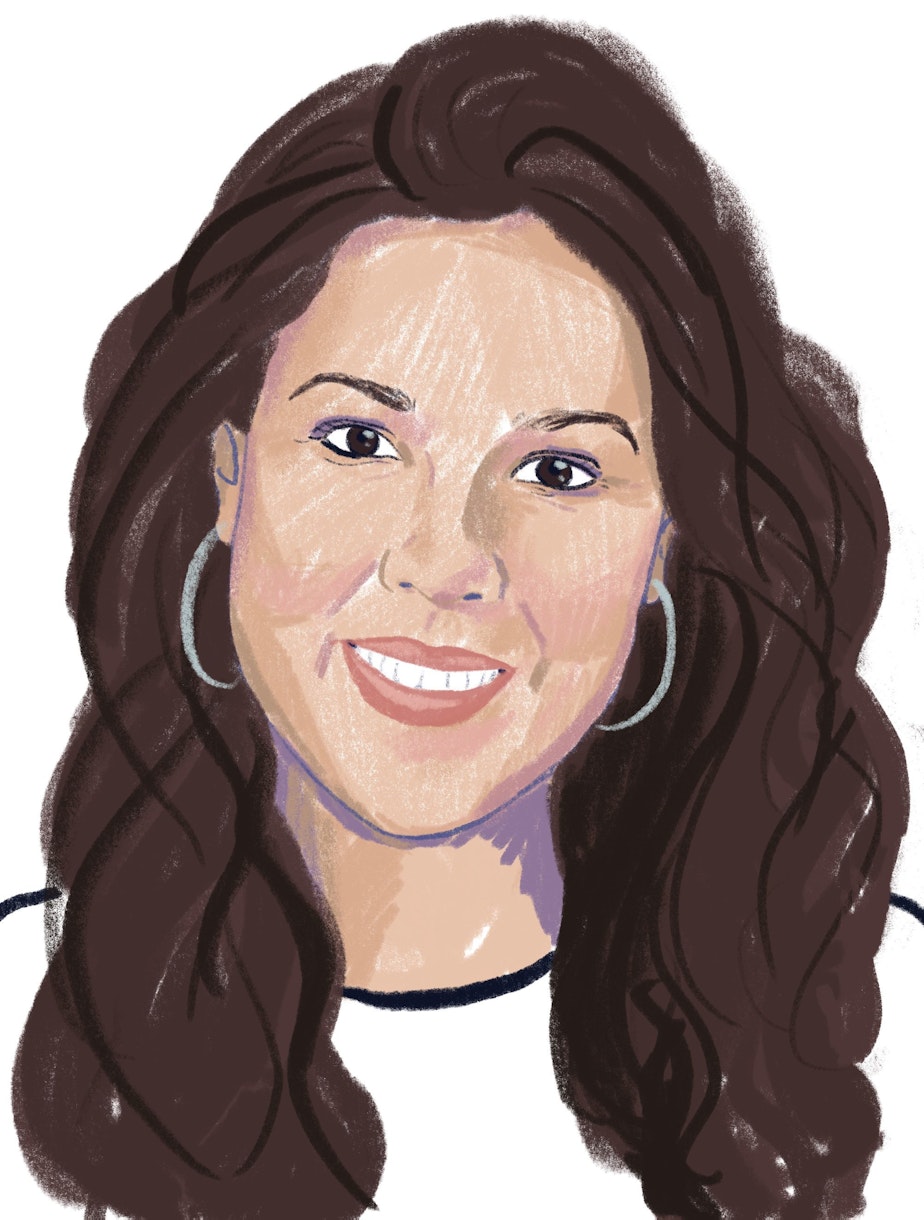First she got the flu, then she needed an organ transplant

Jana Morrelli was a 27-year old newlywed. Organ donation was the furthest thing from her mind. Soon it would become her entire life.
It started with a bad sore throat, the kind that lingers. She went to the doctor three times searching for answers.
Doctors ran tests, offered up possible diagnoses — bronchitis, other upper respiratory infections, but there was no clear cause.
After three weeks, Morrelli says it began to feel like her brain stopped working. She couldn’t remember where she’d parked her car. Morrelli could no longer walk a city block without wheezing or gasping for air. Once, she cried when she realized she would have to walk an extra block, scraping her hand along the wall to keep her balance.
She was in the emergency room when a CAT scan revealed her heart was failing. The flu had damaged her heart. She was admitted immediately to the ICU.
From her bed, Morrelli overheard a doctor in the ICU remark, “Oh, she just won the lottery…in a bad way.”
“There were no symptoms that anyone would know to look for,” Morrelli says. “I was a healthy 27-year old and you wouldn’t run these big, expensive tests on a healthy 27-year old.”
She lived with her weakening heart for nine years and her health continued to worsen. There wasn’t a medication to heal the damage. Morrelli suffered multiple heart attacks and endless visits to the hospital.
The next step was to implant a heart pump.
“They cut me open from my collar bone, over a foot, all the way down my chest, opened my ribs and inserted a pump the size of a hockey puck.”
The pump was powered by a motor that rested in a 12-pound pack. To live, Morrelli had to wear the pack she described as an “ugly purse” every day.
A heart transplant would save her life, doctors told her. But before her name could be added to the list, she would have to earn it.
With more than 114,000 people in the United States on the transplant waiting list and 20 of those people dying everyday, there’s a very strict list of requirements based on the patient’s health.
Morrelli met every condition except one — she was overweight. Despite being health-stricken and depleted, Jana would have to lose 55 pounds just to get a spot on the list. Determined, she worked with a nutritionist and recruited her friends to help her shed the weight by taking walks.
To fight boredom, she used her iPhone to capture the images she saw along her walks. The photos motivated her to keep walking.
It took Morrelli eight months to reach her goal weight and prove to the doctors she could keep it off. She finally achieved a spot on the transplant list.
She was told that the wait could be up to a year, but LifeCenter Northwest, an organization that matches recipients and organ donors, called her six weeks later.
Morrelli cries as she recounts the night she received a call from the doctor that her heart had arrived. She gets emotional talking about the pain her family felt when they saw her in hospital beds. They never knew if it would be the last time.
But thanks to her new heart, there’s hope for the future.
“My body can now keep up with my mind,” Morrelli said.
Morrelli takes precautions to protect her health. She takes two handfuls of pills daily. The immunosuppressants are vital to preventing her body from rejecting her new heart, but the side effects are potentially damaging.
“I think one of the things that people wonder is how I could come through this and not be scared of my own shadow or worried about something like this happening again. I have that…but I think a lot of this is a decision. This is deciding that I am not going to let that worry overtake my actions,” she said.
Today, Morrelli volunteers with LifeCenter Northwest. It has become Morrelli’s second home.
“Organ donation can change a life and transform a family and can give hope and opportunity.”
Morrelli talks to to medical professionals about how donation has affected her life.
“They see the part that’s really heart-wrenching and difficult and emotional. I go in and show them the wonderful side.”

This story was produced by Monica Rivera as part of the Next Generation Radio Project, a week-long digital journalism training project designed to give competitively selected participants, who are interested in radio and journalism, the skills and opportunity to report and produce their own multimedia story. Those chosen for the project are paired with a professional journalist who serves as their mentor. KUOW hosted the project in July 2018.




